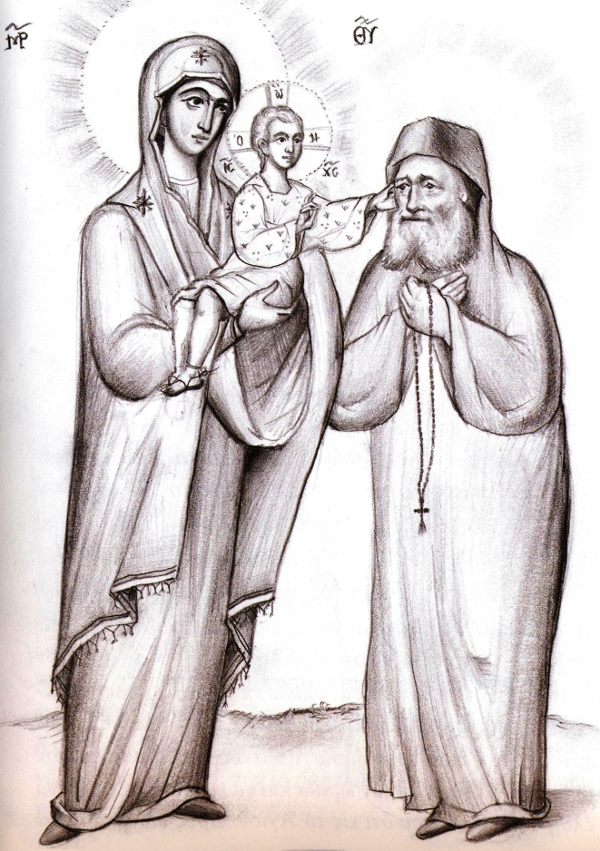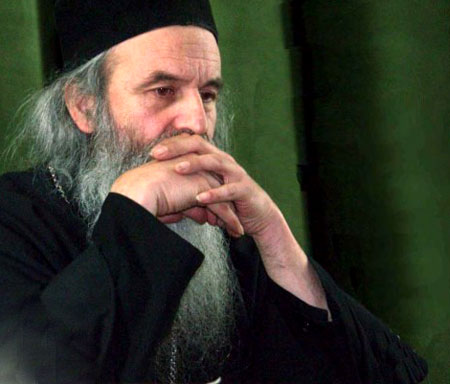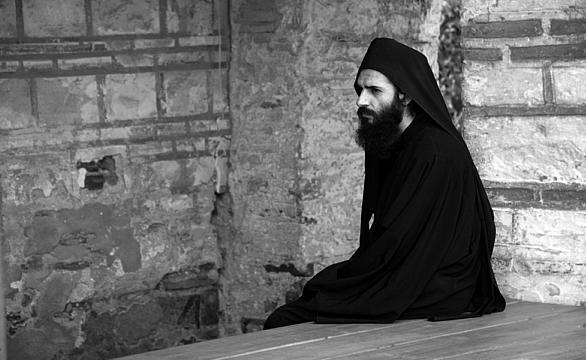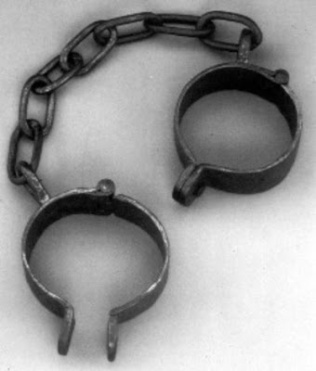Troparion: O Angel of God, my holy Guardian, keep my life
in the fear of Christ God, strengthen my mind in the true way and wound my soul
with heavenly love, so that guided by Thee, I may obtain the great mercy of
Christ God.
Glory to the Father, and to the Son, and to
the Holy Spirit, now and ever, and to the ages of ages. Amen.
Theotokion: O holy Lady, Mother of our God, thou didst
amazingly bear the Creator of all: with my Guardian Angel always pray His
kindness to save my soul inhibited and bound by passions, and grant me
remission of sins.
Canon, tone 8.
Song 1.
Eirmos: Let us sing to the Lord Who led His people
through the Red Sea, for He alone has triumphed gloriously.
Jesus, Son of God, have mercy on us.
Troparia:
Grant me, Thy servant, O Savior, worthily to
sing a song and to praise the fleshless Angel, my Guide and Guardian.
Holy Angel, my Guardian, pray for me.
I lay alone in folly and idleness, O my Guide
and Guardian; forsake not me who am perishing.
Glory to the Father, and to the Son, and to the Holy
Spirit:
Guide my mind by thy prayer to fulfill the
commandments of God, and to receive from God remission of sins, and teach me to
hate all wickedness, I pray thee.
Now and ever, and to the ages of ages.
Amen.
Theotokion: With my Guardian Angel, O Virgin, pray for me
thy servant to the Bountiful One, and teach me to fulfill the commandments of
thy Son and my Creator.
Song 3.
Eirmos: Thou art the strengthening of all who come to
Thee, O Lord, Thou art the Light of those in darkness, and my spirit sings of
Thee.
Holy Angel, my Guardian, pray for me.
Troparia:
All my thoughts and my soul I have committed
to thee, O my Guardian; deliver me from all attacks of the enemy.
Holy Angel, my Guardian, pray for me.
The enemy troubles and tramples on me, and
teaches me to follow my own desires; but, O my Guide, forsake not the dying.
Glory to the Father, and to the Son, and to
the Holy Spirit:
Grant me to sing with thanksgiving and fervor
to my Creator and God, and to thee my good Angel Guardian: O my deliverer,
rescue me from foes that trouble me.
Now and ewer, and to the ages of ages.
Amen.
Theotokion: Heal, O immaculate one, the most painful
wounds of my soul, and drive away the enemies ever fighting against me.
Lord, have mercy, Lord, have mercy, Lord,
have mercy.
Glory to the Father, and to the Son, and to
the Holy Spirit, now and ever, and to the ages of ages. Amen.
Sedation: From the love of my soul I cry to thee, O
Guardian of my soul, my most holy Angel! Protect and guard me always from the
hunting of the evil one, and guide me to the heavenly life; teach me and
enlighten me and strengthen me.
Glory to the Father, and to the Son, and to
the Holy Spirit, now and ever, and to the ages of ages. Amen.
Theotokion: Immaculate Virgin, Mother of God, who gavest
birth without seed to the Lord of all, pray Him with my Guardian Angel to
deliver me from all doubt, and to give to my soul feeling and light, and to
cleanse me from sin, for thou alone art a quick defender.
Song 4.
Eirmos: I have heard, O Lord, the mystery of Thy plan.
I contemplate Thy works, and glorify Thy divine nature.
Holy Angel, my Guardian, pray for me.
Troparia:
Pray to God the Lover of men, and leave me
not, O my Guardian, but ever keep my life in peace, and grant me the invincible
salvation.
Holy Angel, my Guardian, pray for me.
As the defender and guardian of my life I
received thee from God, O Angel. I pray thee, O holy one, free me from all
harm.
Glory to the Father, and to the Son, and to
the Holy Spirit:
Cleanse my foulness by thy holiness, O my
Guardian, and may I be drawn from the left side by thy prayers, and become a
partaker of glory.
Now and ever, and to the ages of ages.
Amen.
Theotokion: Perplexity confronts me through the evil
surrounding me, O immaculate one, but deliver me from it speedily, for I run
only to thee.
Song 5.
Eirmos: Rising early we cry to Thee, O Lord; save us,
for Thou art our God, and other than Thee we know none.
Holy Angel, my Guardian, pray for me.
Troparia:
As thou hast boldness towards God, my holy
Guardian, pray Him to deliver me from the evils which offend me.
Holy Angel, my
Guardian, pray for me.
O radiant light, make radiant my soul, my
Guide and Guardian Angel, given me by God.
Glory to the Father, and to the Son, and to
the Holy Spirit:
Keep me awake who sleep from the burden of my
sins, O Angel of God, and by thy prayers raise me up to glorify Him.
Now and ever, and to the ages of ages.
Amen.
Theotokion: O Lady Mary, Virgin Mother of God, O hope of
the faithful, subdue the attacks of the enemy, and to those who sing to thee
give joy.
Song 6.
Eirmos: Grant me a garment of Light, O Thou Who
wrappest Thyself in Light for a garment, most merciful Christ our God.
Holy Angel, my Guardian, pray for me.
Troparia:
Deliver me from every misfortune and accident
and save me from sorrow, I pray, O holy Angel, given to me as my good Guardian
by God.
Holy Angel, my Guardian, pray for me.
Enlighten my mind, O good one, and illumine
me, I pray thee, O holy Angel, and teach me to think always positively and
profitably.
Glory to the Father, and to the Son, and to
the Holy Spirit:
Calm my heart from present disturbance, and
strengthen me to be awake to the good, O my Guardian, and guide me miraculously
in quietness of life.
Now and ever, and to the ages of ages.
Amen.
Theotokion: The Word of God dwelt in thee, 0 Mother of
God, and showed thee to men as the heavenly ladder. For by thee the Most High
descended to us.
Lord, have mercy. Lord, have mercy. Lord,
have mercy.
Glory to the Father, and to the Son, and to
the Holy Spirit, now and ever, and to the ages of ages. Amen.
Kontakion: Have compassion on me, O holy Angel of the Lord,
my Guardian, and leave me not, impure as I am, but irradiate me with the Divine
Light, and make me worthy of the Heavenly Kingdom.
Oikos: Grant my soul, humiliated by many temptations,
the ineffable Heavenly Glory, O holy intercessor and singer with the Choirs of
fleshless Powers of God. Have mercy and keep me, and illumine my soul with good
thoughts, that I may be enriched by thy glory, O my Angel; subdue my foes who
wish me evil, and make me worthy of the Heavenly Kingdom.
Song 7.
Eirmos: Having arrived in Babylon from Judea, the
children of old by their faith in the Trinity trod down the flame of the
furnace singing: O God of our fathers, blessed art Thou.
Holy Angel, my Guardian, pray for me.
Troparia:
Have mercy and pray for me, O Angel of the Lord,
for I have thee as my defender for the whole of my life, the Guide and
Guardian, given me by God forever.
Holy Angel, my Guardian, pray for me.
Let not my sinful pilgrim soul, given thee
chaste by God, be murdered by robbers, O Holy Angel, but lead it to the way of
repentance.
Glory to the Father, and to the Son, and to
the Holy Spirit:
My whole soul is disgraced by evil thoughts
and acts, but make haste, O my Guide, and grant me healing with good thoughts,
that I may always follow the right way.
Now and ever, and to the ages of ages.
Amen.
To Jesus: Fill with wisdom and divine strength all who
cry with faith, through the Mother of God, to Thee, O Personal Wisdom of the
Highest: O God of our fathers, blessed art Thou.
Song 8.
Eirmos: The King of Heaven, Whom Hosts of Angels
praise, let us praise and exalt throughout all ages.
Holy Angel, my Guardian, pray for me.
Troparia:
Strengthen the life of thy servant and never
leave me, O gracious Angel, sent by God.
Holy Angel, my Guardian, pray for me.
I ever hymn thee, O Good Angel, Guide and
Guardian of my soul, most blessed spirit.
Glory to the Father, and to the Son, and to
the Holy Spirit:
Be my Veil and Visor in the Judgment Day of
all men, when all deeds, good and evil, will be tried by fire.
Now and ever, and to the ages of ages.
Amen.
Theotokion: Be the help and peace of thy servant, O
Ever-Virgin Mother of God, and leave me not bereft of thy protection.
Song 9.
Eirmos: Saved by thee, O pure Virgin, we confess thee
to be supremely the Mother of God, and with Fleshless Choir we magnify thee.
O Jesus, Son of God, have mercy on us.
Troparia:
Have mercy on me, O my only Savior, for Thou
art merciful and kind-hearted, and make me a member of the Choirs of the
Righteous.
Holy Angel, my Guardian, pray for me.
Grant me ever to think and do only what is
useful, O Angel of the Lord, that I may be undefiled and strong in infirmity.
Glory to the Father, and to the Son, and to
the Holy Spirit:
Having boldness towards the Heavenly King,
pray Him, with the other Angels, to have mercy on me, wretched as I am.
Now and ever, and to the ages of ages.
Amen.
Theotokion: O Virgin, who hast great boldness towards Him
Who took flesh of thee, deliver me from attachments and grant me forgiveness
and salvation by thy prayers.
Prayer to the Holy Guardian Angel
Holy Angel of Christ, I fall down and pray to
thee, my holy Guardian, given me from holy Baptism for the protection of my
sinful body and soul. By my laziness and bad habits, I have angered thy most
pure light, and have driven thee away from me by all my shameful deeds, lies,
slanders, envy, condemnation, scorn, disobedience, brotherly-hatred, grudges,
love of money, adultery, anger, meanness, greed, excess, talkativeness,
negative and evil thoughts, proud ways, dissolute madness, having self-will in
all the desires of the flesh. O my evil will, which even the dumb animals do
not follow! How canst thou look at me or approach me who am like a stinking
dog? With what eyes, O Angel of Christ, wilt thou look at me so badly snared in
evil deeds? How can I ask forgiveness for my bitter, evil and wicked deeds,
into which I fall every day and night, and every hour? But I fall down and
pray, O my holy Guardian: pity me, thy sinful and unworthy servant (Name).
Be my helper and protector against my wicked enemy, by thy holy prayers, and
make me a partaker of the Kingdom of God with all the Saints, always, now and
ever, and to the ages of ages. Amen.





 , “Humanistic Ecumenism”
, “Humanistic Ecumenism”






